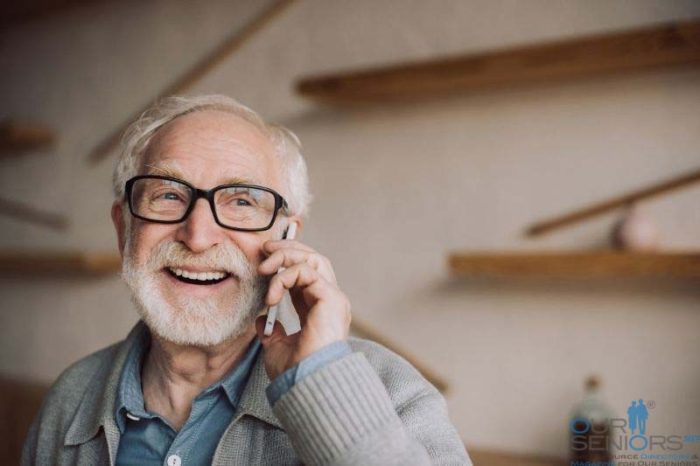The state of Florida recognizes the critical importance of its senior citizens. In fact, Florida’s government has a department dedicated exclusively to providing information, assistance and services to seniors. The Florida Department of Elder Affairs (DOEA) is a hidden gem, full of good stuff for seniors and their families. Programs range from a senior legal helpline to information on robotic pets. That’s correct, the DOEA partnered with a firm that produces therapeutic robotic pets and has distributed more than 7,000 of them to socially isolated seniors and persons dealing with Alzheimer’s disease. These innovative ‘critters’ help combat loneliness and depression by improving overall mood and quality of life.
The DOEA’s mission statement reads, “To promote the well-being, safety, and independence of Florida’s seniors, their families, and caregivers.” To perform this mission, the agency depends on a system of 11 Area Agency on Aging centers throughout the state. These non-profit organizations are funded by the state and provide a coordinated system of information about senior services throughout Florida. They provide information and assistance about state and federal benefits, as well as available local programs and services. In short, your local Agency on Aging is a good place to start when looking for help with many situations common to seniors.
Here is a shortlist of some of the DOEA programs available to Florida’s seniors:
The Long-Term Care Ombudsman Program. This is a system of trained volunteers who act as advocates for the residents in long-term care facilities. These volunteers work with facility staff members to identify and resolve complaints made by residents, or families of residents, in assisted living facilities or other long-term care environments. In addition, the Ombudsman Program monitors the development and execution of federal and state regulations regarding the welfare of residents in long-term care facilities. They conduct annual assessments of these organizations and aid the development of resident councils.
If you feel that you or a family member needs ombudsman services, click on the link above. To find out how to become a volunteer ombudsman in this program, follow this link for information—Volunteer.
The Florida Senior Legal Helpline. This service offers free legal advice and short-term services over the telephone to eligible Florida residents, 60+. Seniors are screened for eligibility (must be within DOEA income guidelines) and scheduled for a telephone appointment if they meet requirements. Some of the areas with which the helpline might assist include scam reporting, consumer fraud, landlord tenant issues and determining eligibility for food, health and other assistance programs. More information is available at the Helpline link above.
SHINE (Serving Health Insurance Needs of Elders). SHINE is a free program offered by the Florida DOEA and its local Area Agencies on Aging. SHINE provides trained volunteers who can assist you with health insurance questions. These volunteers offer one-on-one counseling and information about Medicare, Medicaid and private insurance options. SHINE’s services are unbiased, and they are free to eligible seniors.
You can get more information on SHINE services by clicking on the link above. If you are interested in helping your fellow seniors, volunteering for the SHINE program may be a great fit. Find out more at SHINE Volunteering.
Vaccine Resources for Homebound Seniors. This program serves homebound seniors by ensuring that they are able to be vaccinated against the COVID-19 virus. For seniors who cannot leave their homes, the Vaccine Resource Program will bring the vaccine to them. For information, click the link above or call your local Area Agency on Aging (see below for contact information.)
The Department of Elder Affairs sponsors or initiates many other programs on topics ranging from preparing pet care in case of emergency to a Dementia Care initiative. For most concerns, the best place to start is your local Area Agency on Aging. Below is a list of the Area Agencies on Aging. These are all private non-profits. Not all of them use the title, “Area Agency on Aging” in their name, but they are part of the same system.
- Senior Resource Alliance
3319 Maguire Blvd., Ste. 100
Orlando, FL 32803
(407) 514-1800 - Elder Source, The Area Agency on Aging of Northeast Florida
10688 Old St. Augustine Rd.
Jacksonville, FL 32257
(904) 391-6600 - Elder Options100
W. 75th St., Ste. 301
Gainesville, FL 32607
(352) 378-6649 - Senior Connection Center
Inc 8928 Brittany Way
Tampa, FL 33619
(813) 740-3888 - Area Agency on Aging of Palm Beach/Treasure Coast, Inc.
4400 N. Congress Ave.
West Palm Beach, FL 33407
(561) 684-5885

